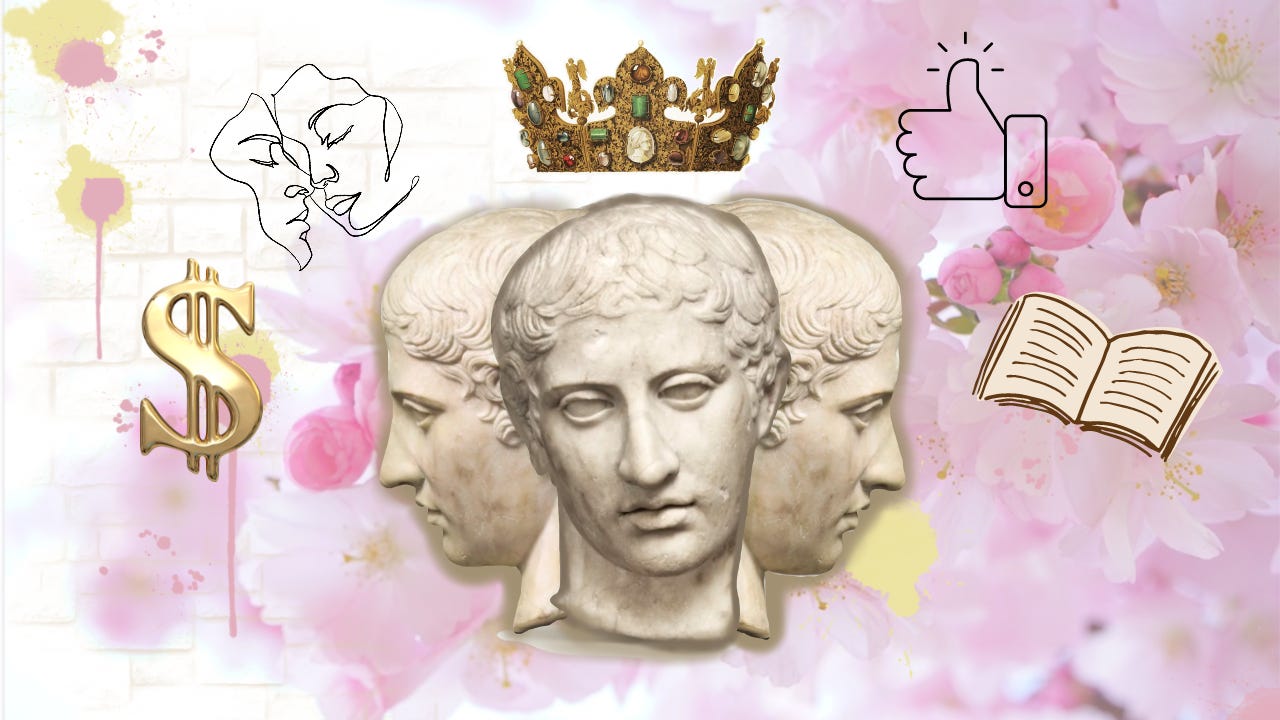
O humans! All of you resemble
ancestress Eve:
what's given to you does not lure,
incessantly the serpent calls you
to him, to the mysterious tree:
you must have the forbidden fruit supplied to you,
for paradise without that is no paradise to you.
(A. Pushkin, “Eugene Onegin”, translate by V. Nabokov)
We continue our journey. In the previous material, we got the first idea of what the infantile ego and egonomics are. Today, let's take it one step further and learn about the six ego-values that billions of consumers crave. Skillful work with these values is the key to success in any field of activity.
Fishers of men
Making money is like fishing. You first need to find out what types of bait are most interesting to potential consumers.

We learned that the attention of most people is focused on external things. Their individual worth, peace and happiness are fundamentally dependent on the achievement of external conditions, such as the approval of others, certain income level, etc. This dependence is like a gold mine, a source of fabulous opportunities.
So what are these external things, more specifically? What should you promise people to get their attention?
There are six main groups:
💰 Money (also property and material things)
💜 Relationships (including sex, friendship and “love”)
👑 Power (including any form of influence)
👍 Status (including approval, respect, fame)
💪 Physical Body
🦄 Escapism
Each external offer, be it services, goods, or blog posts, the consumer evaluates according to these six aspects. I would say the infantile mind has something like a scanner that estimates ego-potential of external offers. Everything happens semi-consciously or completely unconsciously, in a matter of moments.
The more convincing your promises of money, relationships, and other aspects, the higher the ego-potential of your product. High ego-potential stimulates the desire to buy, download, read, watch, etc.

Of course, each person's ego-scanner has individual settings. People can believe in some ego-aspects more than others, and periodically change their minds. People can learn something in the process of life, as a result of which they lose faith in certain forms of ego-aspects.
This is where the concept of target audience comes in. The target audience is those people who tend to believe your ego-promises, based on their upbringing, education, social status, habits, psychological state, life experience and other personal characteristics.
Almost all people are obsessed with at least a few of these six ego-aspects (but more often they are obsessed with all of them at once). However, the same dependencies have hundreds of forms. Because of this, people can seem very different, sometimes almost antagonistic to each other, although at a deeper level we can see that they are controlled by absolutely identical mechanisms.
How to use it in practice?
How to convince the infantile ego? Well, this is a whole art, a magical science, which we will gradually study with specific examples.
First, you will need to work on several of the six ego-aspects listed above, or even all six at once.
Yes, there are projects based on only one single ego-aspect, for example, multi-million lotteries. To some extent, coaches that teach money affirmations, as well as best-selling books like The Richest Man in Babylon and Rich Dad Poor Dad, are close to this.

Of course, in these cases, everything revolves around Money. It is convenient to work with this ego-aspect. Right now money is the most popular god on Earth, the absolute number one in the minds of most consumers around the world (although this is unlikely to last very long, I think).
The secret is simple. Money these days seems to be the surest way to get all other external values: power and high status, interesting friends and worthy partners, the opportunities to improve the body and engage in escapism more often. As a result, money is a wonderful 6-in-1 set which provides everything that is needed for happiness, peace and self-esteem (not really).
However, in most cases, entrepreneurs and creators need to cultivate a few ego-aspects. If your product includes several strong ego-aspects, it becomes more attractive in the eyes of potential consumers, becomes an ego-rich product.
How it works in practice? Let's imagine that we own a restaurant and we need to increase our profits.

Even a very quick glance at the egonomic memo is enough to generate some ideas:
Money. Do we have an attractive pricing policy? Is there a good discount system for regular customers? Can we offer a promotion like “dessert as a gift for the second visit”?
Relationships. Have we created an atmosphere of “love for visitors”? Is the restaurant comfortable for dates and friendly meetings? Can we specifically promote the restaurant as a cozy place for lovers, a la “we help build love”?
Power. Do our guests feel like kings and queens? How is our level of service? Are the waiters super-executive and submissive?
Status. What is our reputation? How can we increase the status of our restaurant? Can we invite a chef with a big name or make the facade and interior more presentable?
Physical Body. Is our restaurant safe for customers? Can we blog about our high standards and do a video tour of the kitchen? Should we rebrand and become a healthy food restaurant?
Escapism. Does our restaurant allow to “plunge into another world, into a daydream”? Can we improve the overall concept, interior design, drinks, food, waiter uniforms, so that customers feel they are dining in a historical or fantasy place (19th century, Rivendell, Tatooine, etc.)?
In fact, egonomics determines the face of the product, its message and even the business model. Playing with these six parameters, you can form the concept of your business, identify the target audience. You can easily see the weaknesses of the product and track progress in specific areas.
To be successful, it is important to keep a balance between different ego-aspects, although some of them may be more important than others.
In the case of our restaurant, we can sacrifice the Money-aspect and charge high prices for meals. But the lack of relative financial gain must be compensated through the impressive level of other ego-aspects. For example, a high Status can be much more important than Money (and much more important than food 😄).
Of course, the forms of ego-aspects can vary greatly from one industry to another. We will learn more about this in future letters.

Create “value”, solve “problems”
You may have heard popular tips about making money: “Solve customer problems!”, “Create value for people!”. That's right, but to successfully apply these tips, you need to correctly understand what value and problem mean from different points of view.
It is one thing to think about Values in the best sense of the word, in an idealistic way. Another thing is to strive for financial success and work with ego-values. Your product can indeed generate real Value and solve serious problems, but to capture the attention of the mass consumer, you also have to work with infantile desires.
You must remember that in the ego-universe, “value” can be the illusion of superiority over other people, and the “problem” is ordinary greed or a painful desire to escape from reality.

In addition, the average consumer is very selfish. Your personality, your revelations and discoveries, your talents and virtues are not very interesting to the infantile ego. What benefits can you provide? How can you entertain me? These topics are much more important.
Sometimes only this understanding stands between a person and success. For example, few people are interested in knowledge by itself. It's another matter if you explain how this knowledge can be used in the context of the six main external values.
Money, Relationships, Power, Status, Physical Body, Escapism.
But...
...isn't seven the most powerfully magical number?
Soon we will continue to explore egonomic principles and consider another super-important nuance, the seventh aspect, without which all of the six will not work well. What do you think it might be? Subscribe to not miss updates.
P.S.
In addition to the six basic ego-aspects and the announced seventh, I also count more than 12 secondary aspects. My complete egonomic memo with all the aspects is still at the draft stage, but I am already actively using it to research various projects.
If you're interested in early access to this draft, as well as future additional egonomics materials, subscribe to the Postal Owl Patreon page: https://www.patreon.com/PostalOwl
In this way, you can also support my hope to write and illustrate an epic interactive novel (I'll tell you about it a little later).




